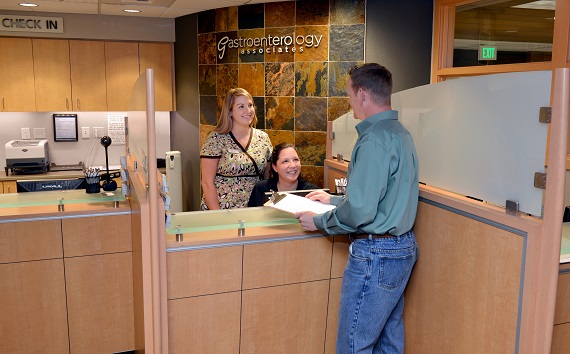Turning 50 can be a difficult milestone for some people. Perhaps you are worried about slowing down or getting a few more wrinkles. When I turned fifty I was worried about two things, the AARP application that arrived uninvited in my mailbox and scheduling a colonoscopy. Fortunately, I turned to the experts at Gastroenterology Associates to help me through the procedure and it was painless and far easier than I had anticipated.
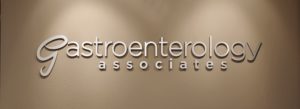
March is Colon Cancer Awareness month and the physicians at Gastroenterology Associates want you to know the importance of screening for colorectal cancer. My first introduction to colon cancer was back in the year 2000 when newscaster Katie Couric underwent a colonoscopy live on the Today Show. She lost her husband, journalist Jay Monahan, to colon cancer at the young age of 42 and was determined to help others avoid suffering the tragic loss that she and her daughters experienced.
More recently, Disney star Bella Thorne documented her colonoscopy via social media by tweeting her way through the procedure. She underwent a colonoscopy at the young age of 18 due to a family history with the disease. Despite these big names bringing awareness to the topic, there is still a lack of discussion and some discomfort with the topic of any examination or medical procedure involving the colon.
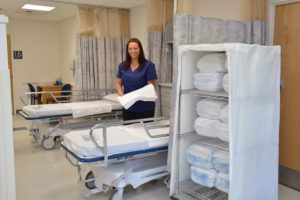
I sat down with Dr. Kathryne Wagner and Dr. Mark Cumings of Gastroenterology Associates to discuss the importance of screening in light of Colon Cancer Awareness Month. According to Dr. Cumings, “Colon cancer is the second leading cause of cancer and the second leading cause of death in Washington state.” This surprised me as I know colon cancer is highly treatable if detected early. Colon cancer begins as a small polyp on the colon wall. If the polyps are found and removed during a colonoscopy, the cancer typically never materializes. Undetected polyps, however, can become cancerous and ultimately deadly.
All patients should be screened for colon cancer starting at age 50. Those with a family history of colon cancer should be screened by age 40 or 10 years younger than affected relative (whichever is younger). If your physician hasn’t brought up a colon cancer screening at your well visit, you may want to ask them about the various tests available. In many cases, your primary care provider can send a referral to Gastroenterology Associates and if you meet criteria, you can make an appointment for your screening colonoscopy through their “open access” process. Simply make an appointment for a colonoscopy and come prepared on your procedure day.
Generally speaking, there is no single best test for colon cancer screening and each test has its own strengths and weaknesses. The advantage of colonoscopy over other tests is the inability of alternatives to remove any polyps or precancerous growths from the colon. Additionally, studies show that colonoscopy has reduced the number of deaths from colorectal cancer by as much as 60-70%.
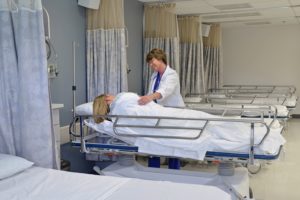
During a colonoscopy, the doctor can view the entire length of your colon and evaluate the health of your entire digestive tract. Most polyps can be immediately removed during the procedure before they cause problems. As I learned firsthand, a colonoscopy is quick and completely painless.
For those uncomfortable with the idea of a traditional colonoscopy, there are several other options. The virtual colonography is far less invasive, but cannot remove polyps should they be discovered and may not be paid for by your medical insurance. A sigmoidoscopy is like a colonoscopy but focuses on a smaller section of the colon, resulting in a less invasive procedure, but also less comprehensive.
There are even several tests that can be done in the privacy of your own home. Tests like FIT and Cologuard use DNA technology to locate abnormal cells which can be associated with cancer or pre-cancer. These kits are picked up at a lab or sent to your home and returned to a lab or mailed in with prepaid postage. The results are sent to your doctor who will contact you to discuss any findings.
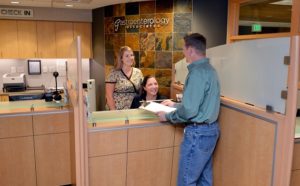
There are many options available for colon cancer screening, yet a staggering 1 in 3 adults have not yet been screened. A quick discussion with your doctor can determine the best test for you. Don’t be afraid or embarrassed to bring up the topic, especially if you have any unusual symptoms. Weight loss, fatigue, abdominal pain and changes in bowel habits can be signs of many serious conditions that include colo-rectal cancers. On the other hand, many cases of colon cancer have no symptoms and a screening test is the only way to detect the cancer.
One thing everyone can agree on: colon cancer screening saves lives.
For more information on Gastroenterology Associates and their practitioners visit their website at www.gastroassociates.org. To learn more about National Colon Cancer Awareness Month visit the Colon Cancer Alliance at http://www.ccalliance.org/
Sponsored







































